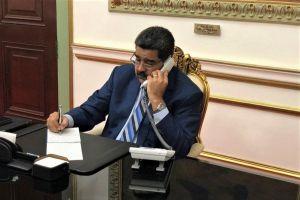Confusion Reigns as Venezuela’s Petro Goes Offline for ‘Maintainance’
Venezuela’s troubled national cryptocurrency the petro (PTR) has gone offline, with petro transactions also apparently suspended at the small number of domestic exchanges that handle the oil-backed token.

Per an announcement made on the official Instagram page run by the National Superintendent of Cryptoactives (SUNACRIP]) – the government agency that polices cryptocurrencies in the nation – the “Petro platform” began “scheduled maintenance” in the evening of May 5. SUNACRIP says that the maintenance is set to end late on Sunday, May 10.
SUNACRIP wrote,
“During this period, we will make new updates to the petro’s technological platform, which will further improve the services and the execution of the operations it offers.”
The agency concluded the post by writing,
“SUNACRIP and the entire Petro team are grateful for the community’s understanding, and for any inconveniences that may arise while necessary steps are taken.”
At the time of writing, petro transactions appear to be disabled at the government-approved exchanges that handle the token.
Despite the claims that the maintenance was “scheduled,” it appears that the news has blindsided most of the country’s crypto community, who took to Twitter to ask questions and proffer theories about what might have caused the move.
With international oil prices still on the floor in the wake of the coronavirus pandemic (briefly hitting negative prices weeks ago), theoretically at least, the petro would be expected to struggle, despite the government’s official line that the token is worth about the same USD 60 per token as it cost when it was first released.
Add to this the fact that Venezuela cannot even sell its oil to most countries due to strict United States sanctions place both on Venezuelan oil sales and the petro itself.
However, some believe that Caracas may have made the move as part of an emergency response to what it says was an attempted assassination on its President. Venezuelan authorities stated that a group of men, including two American nationals, had been arrested as part of a thwarted international effort to topple the incumbent regime, which the United States has claimed is illegitimate.
Petro users in Venezuela have earlier this year claimed that they are struggling to offload PTR tokens, with one writing that exchanges would not allow customers to sell more than PTR 0.1 every 15 days.
Media outlets have also reported that some Venezuelans are claiming that the PTR is trading for as little as USD 8 per token on peer-to-peer platforms.
Regardless, with the network now offline, uncertainty about the token – which is pegged to as-yet-unbarreled oil reserves, rather than ready-for-sale crude – remains high, both in Venezuela and beyond.
However, as both SUNACRIP and the central government have remained silent since announcing the maintenance work, it looks as though users will need to wait until Sunday at least to discover the petro’s fate.




